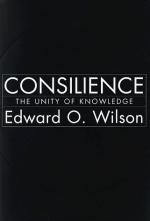
|
| Name: _________________________ | Period: ___________________ |
This quiz consists of 5 multiple choice and 5 short answer questions through The Arts and their Interpretation.
Multiple Choice Questions
1. What claims do philosophers make for the unification of knowledge?
(a) That it can bring more peace to political conflicts.
(b) That scientific solutions are incomplete without the humanities.
(c) That it can reduce the need for science.
(d) That it can resolve issues the sciences cannot answer.
2. When was complexity theory formed?
(a) The 1920s.
(b) The 1970s.
(c) The 1890s.
(d) The 1950s.
3. According to complexity theory, what is the result of living on the edge of chaos?
(a) Evolution.
(b) Experimentation.
(c) Extinction.
(d) Escalation.
4. What power does Wilson attribute to men who control large amounts of territory?
(a) The power to distribute genes widely.
(b) The power to command people's labor.
(c) The power to determine the local economy.
(d) The power to create monopolies.
5. What benefit does Wilson say consilience has?
(a) It translates science into humanities and vice versa.
(b) It describes the humanities in scientific terms.
(c) It provides a Rosetta Stone for the sciences.
(d) It allows facts and theories to be tested.
Short Answer Questions
1. What does Edmund Wilson say is the logic behind consilience?
2. What force did John Locke believe in, in Wilson's account?
3. What does Edmund Wilson say wars are products of?
4. How are scientific theories constructed and used within the scientific community, in Wilson's account?
5. What did Descartes argue for, in Wilson's account?
|
This section contains 302 words (approx. 2 pages at 300 words per page) |

|




